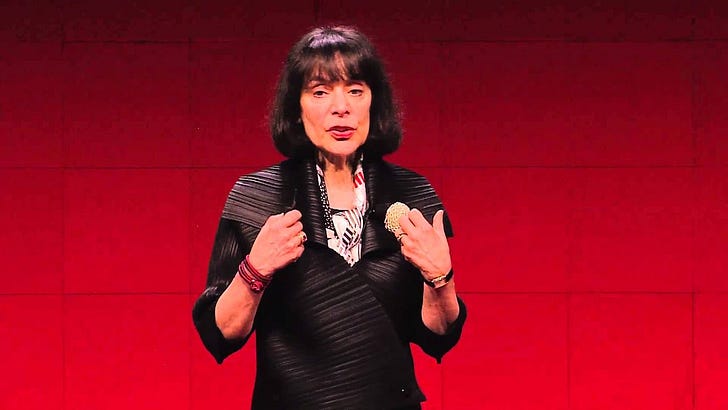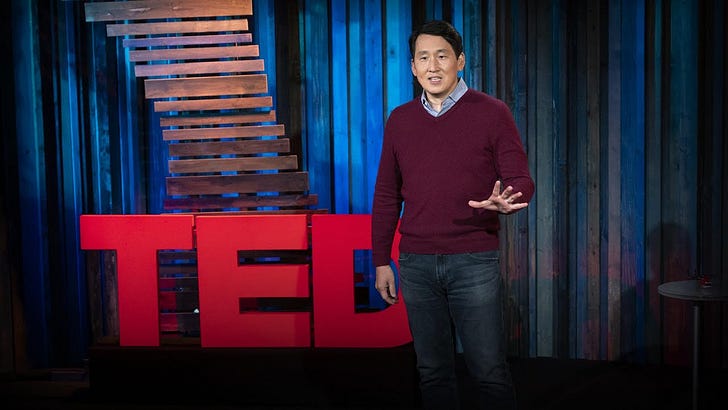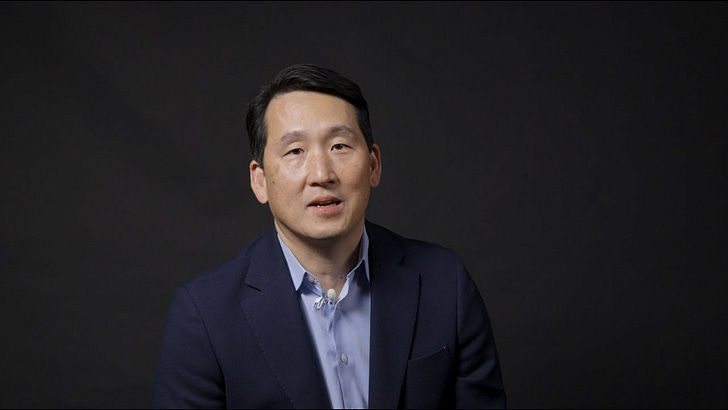Embracing The power of 'Not yet'
Professor Carol Dweck: 'Developing A Growth Mindset'.
Hello, Dear Reader! Welcome to our new Carer Mentor community members!
I’m Victoria. You can read why I’m publishing Carer Mentor here: Who Started Carer Mentor and Why?
I’m reimagining what’s possible when we shift our mindsets and practice emotional agility, and what if we could teach this to children, too?
Summary
Professor Carol Dweck's research and video below emphasise the power of a "growth mindset," highlighting that abilities can be developed through hard work and learning. Contrary to a "fixed mindset," which assumes that abilities are static, a growth mindset fosters resilience, openness to new experiences, and a willingness to take risks. It comes from shifting perceptions of personal traits. People with a growth mindset are less interested in appraising supposedly unchanging characteristics—IQ, musical aptitude, physical gifts, etc.—and more interested in how skills can be cultivated and improved through practice. This mindset can lead to increased creativity, entrepreneurial spirit, and success.
A summary of Dr Susan David’s article and her simple exercise shows us how to cultivate a growth mindset.
A growth mindset puts you in the driver’s seat of your own life and empowers you to take the wheel. We all deserve the chance to learn. - Susan David
Professor Carol Dweck’s Profile
Carol S. Dweck is a leading researcher in the field of motivation and is the Lewis and Virginia Eaton Professor of Psychology at Stanford. Her research focuses on why students succeed and how to foster their success. More specifically, her work has demonstrated the role of mindsets in success and has shown how praise for intelligence can undermine students’ motivation and learning. She has also held professorships at and Columbia and Harvard Universities, lectured to education, business, and sports groups worldwide, and has been elected to the American Academy of Arts and Sciences and the National Academy of Sciences. She won the Distinguished Scientific Contribution Award from the American Psychological Association, one of the highest awards in Psychology, as well as six other lifetime achievement awards. Her bestselling book Mindset (published by Random House) has been widely acclaimed and has been translated into over 20 languages.
Prof. Carol Dweck’s Standford Alumni Presentation (Oct 9, 2014)
A summary of the video
The power of mindset, specifically the 'growth mindset', can be transformative in education, personal development, and virtually every aspect of life. Stanford psychologist Carol Dweck developed the concept of the growth mindset theory. It reimagines how we think about success and the potential for growth and learning.
A growth mindset is the belief that our abilities and intelligence can be developed through dedication, hard work, and a love of learning. Professor Dweck's research shows that when individuals embrace a growth mindset, they are more resilient in the face of failure, more motivated to take on challenges, and, ultimately, more successful.
Consider the power of "yet", a simple concept at the core of the growth mindset. When students in a Chicago high school didn't pass, they were awarded the grade "not yet", which meant that while they haven't grasped the material now, they’re on a learning curve and have the potential to improve. This approach instills hope and promotes a focus on growth and improvement rather than a final, unchangeable grade.
Brain scans can show these different mindsets! When students with a fixed mindset encounter an error, their brains look unchanged and dull. In contrast, the brains of students with a growth mindset are active, ‘alight with processing the error, learning from it, and correcting it.
How we raise our children and educate our students can significantly influence their mindsets. Prraising children for their effort, strategy—‘how they figure things out’—focus, and perseverance, rather than their inherent intelligence or talent, fosters a growth mindset. This encourages children to seek challenges and resilience, key elements for long-term success.
Even the language we use can affect our mindset. Using "yet" or "not yet" when a student encounters a setback can give them confidence and encourage persistence.
Professor Dweck has shown that the growth mindset can be taught directly. In one study, students were taught that every time they push out of their comfort zone to learn something hard and stick to it, their brains form new, stronger connections, and over time, they can become smarter.
Adopting a growth mindset can lead to increases in grade performance, especially among struggling students, and it has the potential to narrow achievement gaps. When educators foster a culture and environment of a growth mindset, equality can can happen, and all students have opportunities to succeed.
The growth mindset is not just about academic achievement. It's about understanding that we have the potential to learn, grow, and improve throughout our lives. It's about knowing that difficulties and setbacks are not indicative of a lack of ability, but rather stepping stones on the path of improvement. The more we understand that our abilities can be grown, the more it becomes a basic human right to live in environments that create that growth, environments filled to the brim with "yet". Full of hope and potential.
Click on the image to go to Amazon.com.
Cultivating a Growth Mindset by Susan David (January 31, 2023)
Key points taken from the article (click on the title above)
How would you describe yourself to a stranger - list a few traits?
Whatever traits you listed, there’s a high likelihood that you view them as being more or less permanent. These attributes are what they are. Gifts? Weaknesses? Are we born smart? Talented? Everyone sees themselves or the world through a fixed mindset.
People with a “growth mindset” believe their important qualities can be profoundly improved through learning and effort.
They are less interested in appraising supposedly unchanging characteristics—IQ, musical aptitude, physical gifts, etc.—and more interested in how skills can be cultivated.
The growth mindset conceptualises success as deriving from what you do rather than who you are.
People with a growth mindset are more open to new experiences, more willing to take risks, and more resilient when faced with failure.
A fixed mindset makes it scary to take chances; any failure becomes a referendum on one’s core identity.
The growth mindset offers a more fluid approach, where failure becomes a chance to acquire new insights rather than a judgment on one’s true self.
People with a growth mindset tend to be more creative, entrepreneurial, and successful.
Dr Susan David’s simple exercise to cultivate a ‘Growth Mindset’.
One feature of the growth mindset is that it can be learned. Just because you currently favour a fixed mindset doesn’t mean you can’t move toward one of growth. The process starts with questioning your assumptions about yourself and the world.
First, think of a trait you dislike about yourself. It could be anything in your professional or personal life that you see as a shortcoming. As an example, let’s say you believe that you’re meek and that colleagues regularly take advantage of your timidity.
Now, try shifting from a fixed mindset to a growth mindset. It’s not that you’re a meek person while others in the office are naturally commanding. You’re just out of practice when it comes to asserting yourself—you can get better with practice!
Consider how this new mindset can shape your behavior going forward. What steps can you take to gradually build up your assertiveness? You don’t need to start big.
It could be as simple as letting your coworkers know that you’re burnt out on the doughnuts at the weekly all-hands meeting—and to suggest that , this week, the office might order from your favorite bagel place instead!
When we come to understand ourselves as the accumulation of actions rather than as an immutable list of characteristics, the world suddenly becomes malleable.
A personal note:
With a growth mindset, we become more agile, and the world becomes full of potential. I’ve often discovered that it’s not only what we improve/learn but also how we learn.
Alternative ways to learn:
A different medium or format to digest new information, e.g. audio or visual. Think how apps have changed how we learn a language. What makes learning easier/more manageable/more enjoyable for you? What works best for you?
New sources of information and skills, not just new books or courses but also learning through others, e.g., reverse mentoring or intergenerational groups. When did you last talk to someone a decade older or younger than yourself, with an open curiosity to learn something from them?
A last word
James Rhee is an inspiring example of a growth mindset and emotional agility. He resigned from a ‘safe’ job in finance, i.e. what he knew, to be the CEO of Ashley Stewart, a fashion company. He learnt from his team and developed a culture of kindness that aligned with his core values. When you listen to his TED talk, it’s clear he had to pivot his actions and plans several times. By embracing a growth mindset and having courage, the company, investors and customers made choices that ‘walked their why’ and delivered value.
Other articles about Growth Mindset and Emotional Agility.
Ageing Well News: How About Mindset. Does It Play A Role? Mandy's Story Mindset In Action!Please ‘❤️’ LIKE the article & consider subscribing!
Carer Mentor by Victoria is free to read. If you have the means and would like to support the publication, I welcome monthly (£6) and annual (£50) subscriptions. Thank you for your ongoing support.









This was a great post! Such an important topic for anyone who feels stuck or would like learn or improve a skill. Also an essential concept for anyone in a mentor position - a teacher, parent or caregiver. I am a Montessori teacher, and the idea of praising a child’s effort and process, rather than the outcome or their immutable characteristics, is very much in alignment with what we do.
Thank you for writing this piece!
Hi Victoria, Thanks for introducing me to Susan David, she provides a wealth ideas.